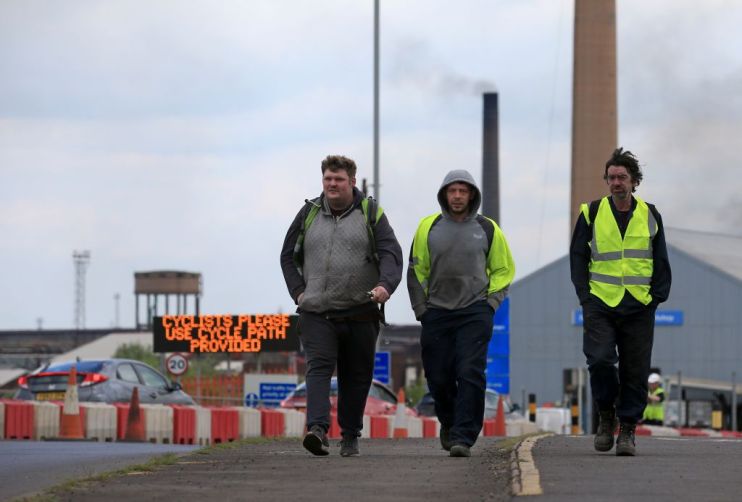The next Tory PM must give a boost to low income families

You may have notice some headlines today about a drop in incomes for the UK’s poorest households.
New research from the Institute of Fiscal Studies (IFS) and the Joseph Rowntree Foundation analyses incomes, poverty and inequality over recent years.
Read more: Tory leadership hopefuls face new vote after TV clash
Between two of the most recently-analysed years, 2016-17 and 2017-18, real incomes fell for the bottom quartile, remained largely flat for the middle quartiles, and grew for most of the upper quartile excepting households with the very highest incomes.
The fall among low income families is attributed to “reductions in the reported amounts of working-age benefits”.
Coming alongside an increase in relative poverty since 2015, this is likely to fuel anger over people struggling to get by despite record levels of employment.
That is not to say it’s all bad. The report also finds that income inequality, measured by the Gini coefficient (the most widely-used statistic) “barely changed” in the last recorded year, and indeed is no worse than it was in the late 1980s.
Bear that in mind the next time you hear someone argue that inequality is soaring.
Also consider that the top one per cent’s share of income is effectively the same now as it was at the turn of the century.
Moreover, absolute poverty was “virtually unchanged” in 2017-18, leaving it “at its lowest ever level”, 16 percentage points lower than in 1997-98.
Another measure of poverty, called material deprivation, showed a drop of one-fifth between 2010-11 and 2017-18.
While it is wrong to argue, as some on the left do, that crippling poverty has spread throughout the UK since a Conservative Prime Minister returned to Downing Street in 2010, the party must be concerned about falling income levels at the bottom of the scale.
To fix this, the remaining five Tory candidates should consider raising the National Insurance threshold to help workers on low salaries.
The IFS report also reveals that “severe poverty is increasingly becoming about private renters”, demonstrating the importance of tackling housing costs.
Read more: London is wealthier than the rest of the UK
Further, it highlights the positive effect that low prices for essential goods has on struggling households, reminding us how crucial free trade, low inflation and price competition will be in post-Brexit Britain.
If it’s to keep Jeremy Corbyn at bay, the Tory party must convince people on low incomes that it has the policies to improve their livelihoods.